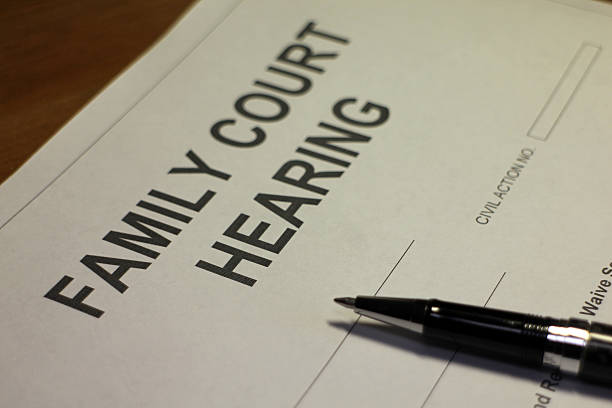The registration of state and territory orders related to children is set out in Section 70A of the Family Law Act (1975). Section 70A also mentions points in relation to the registration of overseas orders for children and the transmission of Australian orders to overseas jurisdictions. These three orders are the main topics for Division 13 of the Family Law Act 1975.
Australian family courts, and the Family Law Act, treat children with the highest consideration and regard. Hence, every case will always cater to the child’s rights and best interests. It’s important to know that there are two primary considerations for the child’s best interests. These are the right of the child to have:
- Firstly, a meaningful relationship with both parents and other significant people in their life; and
- Secondly, protection from any form of violence/harm, abuse, neglect
Courts will always follow these primary considerations when conducting the registration of state and territory orders relating to children. Hence, it’s essential to know how courts work around orders relating to children and how they register according to state laws and regulations.
Section 70C: Registration of Orders Made Under Law of a Prescribed State
The applicable rules of court may make provisions related to the registration of orders made under the laws of a prescribed state. According to the Family Law Act’s interpretation, the applicable rules of the court refer to:
- Division 1 and 2 of the Federal Circuit and Family Court of Australia; and
- Any other court with the standard rules of court made under the Family Law Act
The territories of Australia are not part of any state. Territories, unlike states, do not have legislation to create laws for themselves. Hence, they must rely on the federal government to create and approve laws. Territories can not also claim any state so the Australian Parliament directly controls them.
Section 70D: Registration of State and Territory Orders in a Particular State
The applicable rules of court may make provisions related to the registration of orders in a particular state. However, that particular state must have jurisdiction under the Family Law Act that is related to state child orders made by a court in another state. A state child order has the effect of:
- Determining the person with whom a child under 18 will live with
- Providing a person to have custody of a child under 18
- Providing a person or persons to spend time with a child who is under 18
- Allowing contact and access between a child who is under 18 and another person

Section 70E: Effect of Registration
Section 70E outlines the effect of registration of state and territory orders relating to children. According to this Section, a state child order registered in court has the same effect and enforceability as a court-made order. A good example of a state child order is a parenting order.
Parenting Orders
Parenting orders are arrangements made for children when couples divorce or separate. Separating or divorcing parents may draft a parenting plan which is an out-of-court informal agreement. If couples are in agreement, they may apply for, and draft consent orders. Then, they may approach the court and have the parenting plan registered and turned into a legally binding order.
However, if couples disagree, the court will urge them to go through alternative dispute resolution methods like mediation and arbitration. These methods aid disputed couples in reaching an agreement without the court’s involvement. If both parties can agree to use these methods, the court may proceed with the necessary registration of state and territory orders for their children.
Courts urge disputed couples to use these methods since courts only use court hearings as a last resort. If couples still can’t agree on alternative dispute resolution methods, the court will conduct a court hearing and draft the appropriate parenting order. Parenting orders commonly cover topics such as:
- Living arrangements
- Special occasions like school holidays and birthdays
- Changeover schedule
- Child care
- Communication methods
- Issues when the other parent is unavailable during the changeover or emergencies
- The child’s relationship with other people
- Interstate or overseas travel
- Medical care
- Education and extracurricular activities
- Additional arrangements if there is more than one child
The Queensland Government also lists out some additional types of orders. Here are other types of court orders related to children in the Queensland Government:
- Temporary Assessment Order (TAO)
- Temporary Custody Order (TCO)
- Court Assessment Order (CAO)
- Directive Order (DO)
- Protective Supervision Order (PSO)
- Transition Order (TO)
- Short-Term Custody Order (STC)
- Short-Term Guardianship Order (STG)
- Long-Term Guardianship Order to the Chief Executive (LTG-CE)
- Long-Term Guardianship Order to a suitable person (LTG-O)
- Permanent care order (PCO)
Registration of State and Territory Orders: Parental Responsibility
Courts will always presume that there is equal shared parental responsibility between two parents even after divorce. However, in rare cases, some courts allocate a parent with sole parental responsibility during family law procedures that involve children. Parental responsibility is a type of responsibility that allows a person to make decisions about a child’s long-term issues.
It’s also important to note that sole parental responsibility is not the same as child custody. A partner who wasn’t granted parental responsibility can still see their child and participate in visitations. Some of the common reasons for allocating sole parental responsibility is the other parent having a history of family violence or drug abuse.
Parental Responsibility Example:
For instance, Leonard and Jenny wanted to settle their divorce proceeding in court. They also had a child named William. Leonard stated that there were instances where Jenny would react violently against him if they had arguments. This was clear evidence of Jenny committing domestic violence.
Leonard wanted sole parental responsibility since Jenny is a violent woman and is not good for their child’s welfare and growth. Jenny contested these allegations, however, Leonard was able to obtain enough evidence to prove Jenny’s violent behaviour. On the other hand, William claimed that he still had a good relationship with his mother, Jenny.
This supported the first primary consideration of the child’s best interests of having a meaningful relationship with each parent. Courts initially conducted the registration of state and territory orders relating to William which allowed William to live with Leonard. The courts then ordered Jenny to undergo a post-separation parenting program to help her with her violent tendencies.
However, Jenny failed the program numerous times. This resulted in Leonard getting sole parental responsibility over William. If Jenny had passed the post-separation parenting program, the court might have granted equal shared parental responsibility to both parents. While Leonard has sole parental responsibility, Jenny may still have the right to visit William under supervision.

How Family Lawyers Can Help With Registering Child Orders
The registration of state and territory orders is a daunting task for any disputed couple during family law proceedings. That’s why it’s important to seek legal advice from a family lawyer so disputed couples know what their options are.
JB Solicitors can help disputed couples explore their options while still meeting their child’s best interests. We have mediation and arbitration services for couples who want out-of-court resolutions.
Contact us today to know more about the registration of state and territory orders relating to children.
